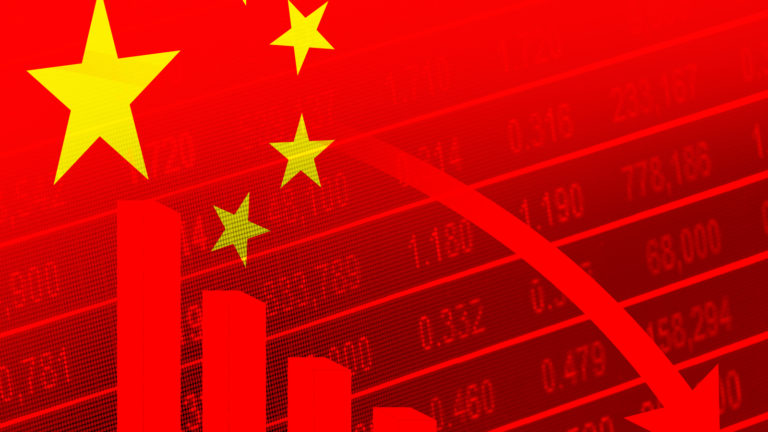Chinese stocks are down across the board today after five of the largest state-owned companies in China announced plans to delist from U.S. exchanges.
Shockwaves are rippling through markets today on news that China Life Insurance (NYSE:LFC), PetroChina (NYSE:PTR), China Petroleum & Chemical Corp. (NYSE:SNP), Aluminum Corp. of China (NYSE:ACH) and Sinopec Shanghai Petrochemical (NYSE:SHI) each plan to delist from U.S. exchanges and trade exclusively in Asia.
News of the delistings has raised concerns among investors that other popular publicly traded Chinese companies such as Alibaba (NYSE:BABA) and JD.com (NASDAQ:
JD) could also stop trading on American exchanges in the coming months. As a result, shares of Chinese listed companies in America are falling across the board today.
What Happened
The delisting announcement comes at a time of heightened political tensions between the U.S. and China. The two countries have been struggling to come to terms with the ability of American regulators to inspect the finances of Chinese businesses. Specifically, American regulators want to see audits of Chinese businesses listed on American exchanges.
U.S. and Chinese authorities have failed to come to an agreement that would allow American inspectors access to the audited financial results of publicly traded Chinese companies ahead of a 2024 Congressional deadline. Companies that fail to comply with U.S. regulatory requirements by 2024 risk being forcibly delisted from U.S. stock exchanges.
Mainland China and Hong Kong are the only two jurisdictions in the world that don’t allow financial inspections under the U.S. Public Company Accounting Oversight Board. Every other country with U.S. listed stocks, from Mexico to Australia, complies with U.S. regulations. Officials in Beijing have cited national security concerns as reasons why they refuse to comply with U.S. laws.
For their part, U.S. regulators say the accounting standards and rules are meant to protect investors from accounting frauds and other financial malfeasance that are rampant throughout China.
Why It Matters
About 300 businesses based in China and Hong Kong valued at $2.4 trillion in market capitalization are at risk of being kicked off U.S. stock exchanges by the U.S. Securities and Exchange Commission (SEC), according to data from Bloomberg Intelligence. The sheer number and value of Chinese companies that trade on U.S. exchanges could negatively impact American markets should they be delisted.
Additionally, many Chinese companies are among the biggest and most competitive in the world, particularly when it comes to technology. Publicly traded concerns such as Alibaba, Baidu (NASDAQ:BIDU) and JD.com are global leaders in areas such as cloud computing, artificial intelligence, e-commerce and online search. Many Chinese electric vehicle makers, including Nio (NYSE:NIO) and Li Auto (NASDAQ:LI), are also listed in the U.S.
What’s Next for Chinese Stocks
Chinese stocks are dropping today on news that several major publicly traded companies are delisting from U.S. exchanges, with the prospect that more companies could leave in the lead-up to the 2024 audit compliance deadline imposed by Congress.
The latest development, and the prospect of more delistings, has spooked investors and led them to hit the “sell” button on Chinese stocks. Whether authorities in Beijing and Washington, D.C. can come to an agreement that will avoid further delistings remains to be seen.
On the date of publication, Joel Baglole did not have (either directly or indirectly) any positions in the securities mentioned in this article. The opinions expressed in this article are those of the writer, subject to the InvestorPlace.com Publishing Guidelines.

